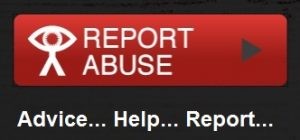Staying Safe
There are lots of adults in school who can help to keep you safe and lots of people you can ask if you need help with anything. We are always here to listen to you if you are worried about anything and we will always do our very best to help you, or find someone else that can. We might not be able to keep what you tell us confidential, if we think you are at risk of being harmed, but if we do need to pass information on, we will support you all the way and keep you informed of what is happening.
Most young people are safe because of the support they have around them. Sometimes other people will try and take advantage of you when they think your support network isn’t around. For example, when you are on-line or when you are out with friends. Some of the risks that you can be up against are explained for you below:
Child Sexual Exploitation
Sometimes, people might want to take advantage of you and ask you to do sexual things and you might find yourself in dangerous situations without even realising it… this is called child sexual exploitation (CSE) and it’s not okay for this to happen to a young person. It is abuse and young people have the right to be safe from it.
How does it happen?
At first, a young person may like, respect, or even think they are falling in love with the person exploiting them. This is because they are ‘groomed’ over time. This process involves making them feel ‘special’, so they become attached. But later, the behaviour of the abuser starts to change, often slowly. By this point, the young person is likely to feel trapped, isolated and scared, and they may find it difficult to acknowledge that they are no longer comfortable in the relationship.
Key messages
Here are some of the messages from local young people who have been sexually exploited:
- Don’t hang around with people who you aren’t willing to take home
- Keep safe online: don’t share personal information or meet up with anyone you’ve met online
- Speak to teachers or someone you trust
- If you feel someone is not safe, tell someone – you are almost certainly right
- Look out for your friends – many young people who are being abused think they’re in a normal ‘loving’ relationship and will not ask for help.
If you’re worried about you or a friend, talk to someone you trust (like a teacher or a youth worker) or call the the Police on 101 to talk things through. If you’re in immediate danger, dial 999 straight away.
Healthy Relationships
As we get older, we develop relationships with lots of different people. Each relationship will be different, some will be healthy and will make you feel good about yourself, whilst others can go wrong along the way and may make you feel uncomfortable, unhappy or scared.
It’s important to stay safe especially if you’re worried or feel a relationship may be going wrong. Visit the Wellbeing page of our website to find lots of support on offer.
Consent
Consent means agreeing to do something. Sex is only ever okay if both people involved want to have sex. Here’s a link to a video on YouTube that covers at the issue of consent:
Staying Safe Online
Computers and mobile phones help us all to share things, talk to our friends and meet new people. But they can also make it easier for bullies and other people who might want to hurt you to get close to you.
How to stay safe
- Keep personal information like mobile numbers and addresses to yourself
- Not all people you meet online are real or honest.
- If you publish a picture or video ANYONE can change or share it.
- Remember you can block people you don’t know in chat and Instant Messenger
- If you find anything that makes you uncomfortable online, tell an adult you trust like a parent or teacher.
What is online abuse?
Online abuse can involve cyberbullying, sexting or cyberstalking using social media accounts, emails, chat rooms and other online forums or websites. The use of digital technology to threaten, tease, upset or humiliate someone else is a form of bullying.
If you are worried about something or need more information about staying safe online you can visit the THINK U KNOW website: https://www.thinkuknow.co.uk/
You can also report abuse by clicking the button below:
